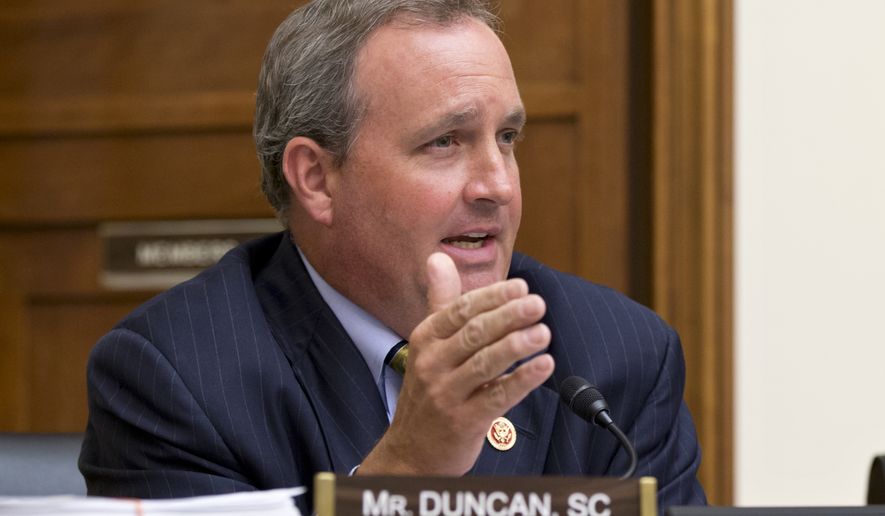The House voted Wednesday to go on record admonishing communities such as San Francisco that now allow illegal immigrants to cast ballots in local elections, calling it another way some localities are undermining federal immigration policies.
The 279-72 vote saw 49 Democrats join with nearly every Republican to protest the growing movement to expand the vote. Sixty-nine Democrats declined to take a stand, voting “present.”
The non-binding resolution does not force any changes, but did put lawmakers on record.
“If we start granting others the sacred right reserved for U.S. citizens it puts the whole democratic process at risk,” said Rep. Jeff Duncan, a South Carolina Republican who has pushed for a tougher line against localities that now include illegal immigrants in their voting population.
But Rep. Jerrold Nadler, New York Democrat, mocked the exercise, calling it an attempt to “denigrate and delegitimize our immigrant population.”
He also questioned the seriousness of the problem.
“I can’t imagine someone living in a foreign country coming to the United States in order to vote in a school board election,” Mr. Nadler said.
He said the House should instead be focused on expanding the number of people able to vote by curtailing voter-identification requirements and allowing felons to restore their voting rights.
Other Democrats went further, accusing the GOP of unveiled racism in decrying illegal immigrant voting.
A 1996 federal law prohibits non-citizens from voting in federal elections, but there is no prohibition on localities, and indeed a number of jurisdictions allow it, to some extent.
Famously liberal Takoma Park, a small jurisdiction in Maryland, has for several decades allowed noncitizens, including illegal immigrants, to vote in local elections.
Experts say as many as 40 states or territories allowed noncitizen voting dating back to the nation’s founding.
San Francisco in July began allowing noncitizens to vote in school board elections — though they must be parents or legal guardians of students.
That sparked renewed interest on Capitol Hill in curtailing the practice.
Mr. Duncan introduced legislation that would have stripped some federal funding from jurisdictions who expanded their voting pools. That bill didn’t advance, but GOP leaders instead offered the non-binding resolution.
Majority Leader Kevin McCarthy, chief sponsor of Wednesday’s resolution, said Congress needed to do something to stand up for the value of American citizenship and voting.
“Ask yourself: Does the concept of citizenship mean anything? Does it grant a person special consideration in the eyes of our government? Does it impose upon him or her special duties or obligations?” he said. “Sadly, too many of our elites and even our politicians have trouble answering these questions. But for the rest of us, American citizenship still resonates as a source of significance, purpose, and identity.”
• Stephen Dinan can be reached at sdinan@washingtontimes.com.




Please read our comment policy before commenting.